 W
WThe Main Directorate of the General Staff of the Armed Forces of the Russian Federation, abbreviated G.U., formerly the Main Intelligence Directorate and still commonly known by its previous abbreviation GRU, is the foreign military intelligence agency of the General Staff of the Armed Forces of the Russian Federation. Unlike Russia's other security and intelligence agencies, such as the SVR, the FSB, and the FSO, whose heads report directly to the president of Russia, the director of the GRU is subordinate to the Russian military command, reporting to the Minister of Defence and the Chief of the General Staff. Until 2010, and again from 2013 onwards, the GRU controlled the military intelligence service and the GRU special forces.
 W
WRudolf Ivanovich Abel, real name William August Fisher, was a Soviet intelligence officer. He adopted his alias when arrested on charges of conspiracy by the FBI in 1957.
 W
WSemyon Ivanovich Aralov was a Russian-Soviet revolutionary and statesman who served as the first head of the Soviet Red Army Intelligence Directorate and subsequently had a career in the Soviet diplomatic service.
 W
WVoldemar Khristianovich Aussem, , was a Russian nobleman and Bolshevik, communist official and Soviet diplomat.
 W
WIgor Nikolayevich Bezler, known by the pseudonym "Bes" is one of the pro-Russian rebel leaders whose group controlled the local police department in Horlivka. He was a prominent commander in the early phases of the War in the Donbass and the 2014 Crimean crisis. In 2014 he went into hiding and as of 2016 issued statements denouncing the Russian-backed separatist groups.
 W
WVladimir Osipovich Bogomolov was a Soviet writer.
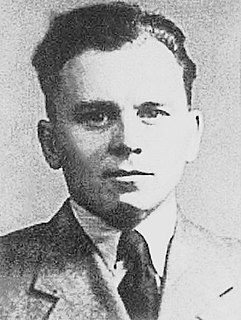 W
WGeorgi Bolshakov (1922–1989) was a Soviet GRU officer under journalist cover who was posted to Washington, D.C., twice, most significantly in the early 1960s. In this capacity, he played a major role in diplomacy between the United States and the Soviet Union during the beginning of the John F. Kennedy administration. President Kennedy’s brother, Attorney General Robert F. Kennedy, secretly met with Bolshakov on numerous occasions in 1961 in order to gain more information about Soviet intentions and convey messages from the administration to the top Soviet leadership, including Premier Nikita Khrushchev.
 W
WYan Chernyak was a World War II era spy who led a network of several dozen people in Germany working for the Soviet Union's military intelligence, the GRU. He was nicknamed "man without a shadow" for his ability to move around undetected.
 W
WKuzma Nikolayevich Derevyanko was a Ukrainian Lieutenant General in the Soviet Army.
 W
WPavel Vitalyevich Gayev was a Soviet military intelligence officer, guards colonel, deputy commander of the 13th Guards Rifle Division (1943).
 W
WIgor Vsevolodovich Girkin, also known by the alias Igor Ivanovich Strelkov, is a Russian army artillery veteran who played a key role in the Annexation of Crimea by the Russian Federation, and later the War in Donbass as an organizer of the Donetsk People's Republic's militant groups. Girkin, a self-described Russian nationalist, was charged by Ukrainian authorities with terrorism. He is currently sanctioned by the European Union for his leading role in the armed conflict in eastern Ukraine. Ukrainian authorities have called him a retired colonel of the GRU.
 W
WFilipp Ivanovich Golikov was a Soviet military commander. As chief of the GRU, he is best known for not taking seriously the abundant intelligence about Nazi Germany's plans for an invasion of the Soviet Union in June 1941, either because he did not believe them or because Joseph Stalin made it very clear he did not want to hear them. He was promoted to the rank of Marshal of the Soviet Union in 1961.
 W
WAnatoly Markovich Gurevich was a Jewish professional Soviet intelligence officer. He was an officer in the GRU, known as a scout in Soviet intelligence parlance. Gurevich was a central figure in the anti-Nazi Red Orchestra in France and Belgium during World War II.
 W
WSergei Ivanovich Gusev was a Russian revolutionary, a founding member of the Bolshevik faction of the Russian Social Democratic Labour Party (RSDLP), and Soviet party leader.
 W
WIvan Ivanovich Ilyichev was a Soviet military official, and in later life a diplomat.
 W
WHans Kippenberger was a German politician (KPD). Between 1928 and 1933 he sat as a member of the National Parliament (Reichstag).
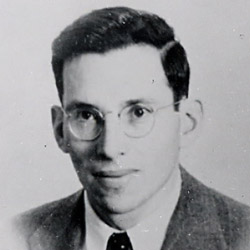 W
WGeorge Abramovich Koval was an American who acted as a Soviet intelligence officer for the Soviet atomic bomb project. According to Russian sources, Koval's infiltration of the Manhattan Project as a GRU agent "drastically reduced the amount of time it took for Russia to develop nuclear weapons."
 W
WDmitry Nikolayevich Kozak is a Russian politician who served as the Deputy Prime Minister of Russia from 2008–2020.
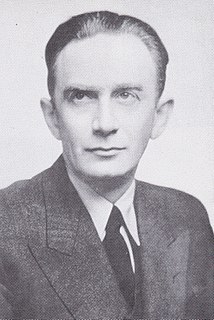 W
WWalter Germanovich Krivitsky was a Soviet intelligence officer who revealed plans of signing the Molotov–Ribbentrop Pact before he defected, weeks before the outbreak of World War II.
 W
WHelene "Leen" Kullman was an Estonian agent of Soviet military intelligence in the Baltic Fleet during World War II.
 W
WVladimir Vasilievich Kvachkov is a Russian former Spetsnaz colonel and military intelligence officer, known for being arrested and charged for the attempted assassination of politician and businessman Anatoly Chubais in 2005, for which he was jailed for three years until he was acquitted on 5 June 2008. Kvachkov did not admit nor did he deny his role in the assassination attempt, instead declaring the act not criminal, and that the elimination of Chubais and the present Russian government was justified as Russia is under the occupation of a "Judeo-Masonic mafia".
 W
WRoman Spiridonovich Mashkov was the commander of an intelligence platoon in World War II and was awarded the title of Hero of the Soviet Union.
 W
WOleg Vladimirovich Penkovsky, codenamed HERO, was a Soviet military intelligence (GRU) colonel during the late 1950s and early 1960s. Penkovsky is known for informing the United Kingdom about the Soviet emplacement of missiles in Cuba, thus providing both the UK and the United States with the precise knowledge necessary to address rapidly developing military tensions with the Soviet Union.
 W
WGeorgy (Yury) Leonidovich Pyatakov was a leader of the Bolsheviks and a politician during the Russian Revolution.
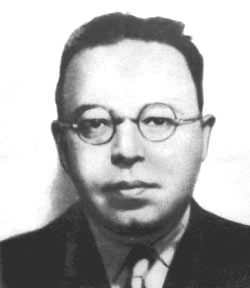 W
WAlexander Radó, also: Alex, Alexander Radolfi, Sándor Kálmán Reich or Alexander Rado, was a Hungarian cartographer and a Soviet military intelligence agent in World War II.
Ignace Reiss – also known as "Ignace Poretsky," "Ignatz Reiss," "Ludwig," "Ludwik", "Hans Eberhardt," "Steff Brandt," Nathan Poreckij, and "Walter Scott "–was one of the "Great Illegals" or Soviet spies who worked in third party countries where they were not nationals in the late 1920s and 1930s. He was known as a nevozvrashchenec ("unreturnable").
 W
WIgor Ivanovich Sechin is a Russian oligarch and a government official, considered a close ally and "de facto deputy" of Vladimir Putin. Sechin is often described as one of Putin's most conservative counselors and the leader of the Kremlin's Siloviki faction, a lobby gathering former security services agents. Until 21 May 2012, he served as Deputy Prime Minister of Russia in Vladimir Putin's cabinet, and he is currently the Chief Executive Officer, President and Chairman of the Management Board of Rosneft, the Russian state oil company.
 W
WState Security General Ivan Alexandrovich Serov was the head of the KGB between March 1954 and December 1958, as well as head of the GRU between 1958 and 1963. He was Deputy Commissar of the NKVD under Lavrentiy Beria, and played a major role in the political intrigues after Joseph Stalin's death. Serov helped establish a variety of secret police forces in Central and Eastern Europe after the construction of the Iron Curtain, and played an important role in crushing the Hungarian Revolution of 1956.
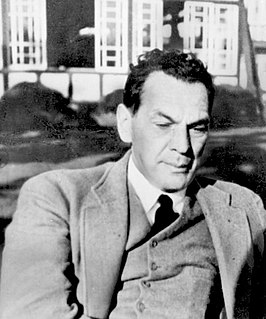 W
WRichard Sorge was a German journalist and Soviet military intelligence officer who was active before and during World War II and worked undercover as a German journalist in both Nazi Germany and the Empire of Japan. His codename was "Ramsay". A number of famous personalities considered him one of the most accomplished spies.
 W
WLieutenant General Pavel Anatolyevich Sudoplatov was a member of the intelligence services of the Soviet Union who rose to the rank of lieutenant general. He became involved in several famous episodes, including the assassination of Leon Trotsky in 1940, the Soviet espionage program which obtained information about the atomic bomb from the Manhattan Project, and Operation Scherhorn, a Soviet deception operation against the Germans in 1944. His autobiography, Special Tasks, published in 1994, made him well known outside the USSR, and provided a detailed look at Soviet intelligence and Soviet internal politics during his years at the top.
 W
WVladislav Yuryevich Surkov is a Russian politician and businessman. He was First Deputy Chief of the Russian Presidential Administration from 1999 to 2011, during which time he was often viewed as the main ideologist of the Kremlin who proposed and implemented the concept of sovereign democracy in Russia. From December 2011 until May 2013, Surkov served as the Russian Federation's Deputy Prime Minister. After his resignation, Surkov returned to the Presidential Executive Office and became a personal adviser of Vladimir Putin on relationships with Abkhazia, South Ossetia and Ukraine. He was fired from this duty by presidential order in February 2020.
 W
WIvan Alexeyevich Susloparov was a Soviet general who served as the Military Liaison Mission Commander with the French government and the Allied Expeditionary Force in Europe in 1944–45. He is mostly known as the person who signed for the Soviet Union the German Instrument of Surrender on May 7, 1945. However, since he did not have an authorization from Moscow to do so, the Soviet Union insisted on signing another Act of Military Surrender near Berlin two days later.
 W
WVladimir Bogdanovich Rezun, known by his pseudonym of Viktor Suvorov, became known as a Russian non-fiction author after he defected to the United Kingdom in 1978. Of Russian-Ukrainian ancestry, Suvorov attended Russian military schools, was a veteran of the armed forces, and had worked as a Soviet military intelligence officer in the Soviet Union.
 W
WLeopold Zakharovitch Trepper was a Polish Communist, agent of the Red Army Intelligence, with the code name of Otto and had been working with them since 1930. He was also a resistance fighter and journalist of Jewish descent.
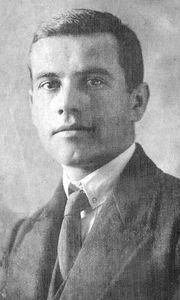 W
WAlexander Ulanovsky (1891–1970) was the chief illegal "rezident" for Soviet Military Intelligence (GRU), who was rezident in the United States 1931–1932 with his wife and was imprisoned in the 1950s with his family in the Soviet gulag.